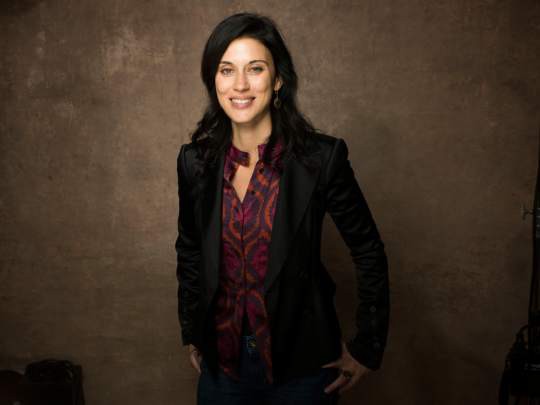Cherien Dabis is an award-winning Palestinian American filmmaker who received her M.F.A. in film from Columbia University. She wrote, directed, produced
and edited several short films including Make A Wish (2006), which premiered at the 2007 Sundance Film Festival, Berlin International Film
Festival as well as Clermont-Ferrand where it won the Press Prize and Jury’s Special Mention. The film went on to win 11 more top international awards.
Dabis worked for three seasons as a writer and co-producer on Showtime’s groundbreaking, original hit television series The L Word before going on
to make her feature writing and directorial debut with Amreeka.
May in the Summer is playing at the London Film Festival.
Women and Hollywood: Please give us your description of the film playing.
Cherien Dabis: A reverse migration (Arab Americans returning to the old country) divorce drama / comedy disguised as a wedding film.
WaH: What drew you to this script? (or if you wrote the script or if it is a doc, what drew you to this story?)
CD: The desire to explore the current trend of immigrants leaving the U.S. to return “home” and finding themselves at various levels of discord with their
home country / culture. I also wanted to portray the radical Americanization that has become modern Jordan over the last 30 years. It’s quite surprising to
see.
WaH: What was the biggest challenge?
CD: Doing all of it at once — writing, directing, acting and producing. It was a lot. Add to that shooting in a country with very little film resources and
doing so during the height of summer. It was 114 degrees, and we were mostly shooting exteriors!
WaH: What advice do you have for other female directors?
CD: Keep doing what you’re doing no matter what anyone says. Defy your own doubt.
WaH: What’s the biggest misconception about you and your work?
CD: Perhaps it’s that I only do cross cultural fare. While that obviously interests me, I feel that with my first two films, which go together like a
diptych, I’ve closed a chapter. I’m now moving on to Arabic language international films and English language American independent films. The melding of
the two has been quite challenging from both a financing and marketing perspective.
WaH: Do you have any thoughts on what are the biggest challenges and/or opportunities for the future with the changing distribution mechanisms for films?
CD: One of the biggest opportunities (which also happens to be one of the biggest challenges) continues to be the direct artist to audience relationship.
If we manage to build that, we own the entire process. It’s a lot of work to get there and a lot of responsibility to take it on, but it promises to be
tremendously freeing.
WaH: Name your favorite women directed film and why.
CD: There are so many! The first one that comes to mind is Jane Campion’s The Piano. Its visual poetry stuns me. I also love Moufida Tlatli’s The Silences of the Palace and Marleen Gorris’ Antonia’s Line. Those movies were the first times I saw strong, feminist female characters
on the big screen.







